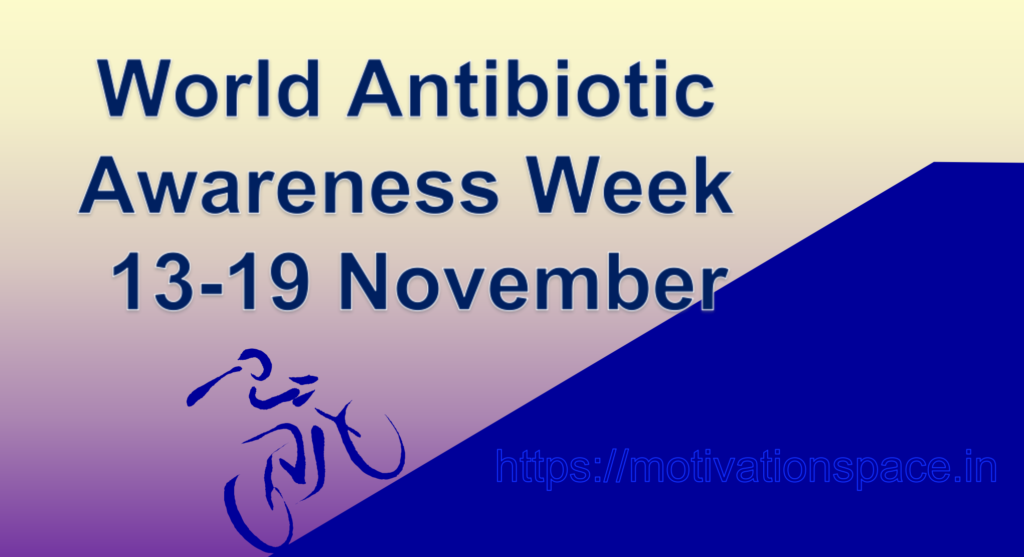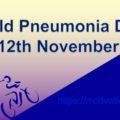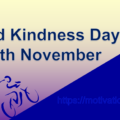Contents of this article
World Antibiotic Awareness Week: Combating Antimicrobial Resistance. World Antibiotic Awareness Week (WAAW) is an annual observance that takes place from November 18th to 24th, and it serves as a global platform to raise awareness about the responsible use of antibiotics and the growing threat of antimicrobial resistance. Antimicrobial resistance (AMR) is a pressing global health challenge that has the potential to render antibiotics, one of modern medicine’s most essential tools, ineffective. In this blog, we will explore the history, significance, and key themes of World Antibiotic Awareness Week, emphasizing the importance of addressing AMR for the future of healthcare.
Understanding Antimicrobial Resistance (AMR)
Antimicrobial resistance occurs when bacteria, viruses, fungi, and parasites develop resistance to the drugs used to treat infections. This resistance makes standard treatments less effective, prolongs illnesses, increases the risk of complications, and can lead to higher healthcare costs. AMR is driven by factors such as overuse and misuse of antibiotics in human and animal health, as well as inadequate infection prevention and control.
To grasp the urgency of addressing AMR, consider the following:
Health Threat:
AMR is a significant threat to global health. Without effective antibiotics, many routine medical procedures, such as surgeries, chemotherapy, and organ transplants, become life-threatening.
Economic Impact:
The economic impact of AMR is substantial, affecting healthcare costs, productivity, and agriculture, particularly in low- and middle-income countries.
Antibiotics at Risk:
Several common infections, such as urinary tract infections, tuberculosis, and gonorrhea, are becoming harder to treat due to antibiotic resistance. If we lose the effectiveness of antibiotics, we risk reverting to a time when simple infections could be deadly.
The Origins and Significance of World Antibiotic Awareness Week
World Antibiotic Awareness Week was established by the World Health Organization (WHO) in 2015 to raise global awareness about AMR and encourage best practices among the public, healthcare professionals, and policymakers to avoid the further emergence and spread of drug-resistant infections.
The choice of dates for this observance is meaningful. It falls in mid-November to coincide with European Antibiotic Awareness Day (EAAD) on November 18th. EAAD, launched in 2008, was the precursor to the global observance. Combining these initiatives helps create a unified, worldwide effort to address the growing threat of AMR.
The Themes of World Antibiotic Awareness Week
Each year, World Antibiotic Awareness Week focuses on specific themes to guide activities and discussions. These themes aim to highlight critical aspects of AMR and responsible antibiotic use. Some of the past themes include:
2020: “Antibiotics: Handle with Care”:
This theme emphasized the importance of responsible use, prescribing, and disposal of antibiotics to combat AMR.
2019: “The Future of Antibiotics Depends on All of Us”:
This theme underscored the role of individuals, healthcare providers, and policymakers in preserving antibiotics for future generations.
2018: “Think Twice. Seek Advice”:
This theme encouraged individuals to seek professional advice before using antibiotics, emphasizing that not all illnesses require antibiotics.
2017: “Seek Advice from a Qualified Healthcare Professional before Taking Antibiotics”:
This theme aimed to educate the public about the importance of consulting healthcare professionals for antibiotic prescriptions.
2016: “Antibiotics: Handle with Care”:
The theme of the first World Antibiotic Awareness Week reiterated the need for responsible antibiotic use, addressing AMR as a shared responsibility.
The Role of Key Stakeholders in Combating AMR
World Antibiotic Awareness Week recognizes that addressing AMR is a collaborative effort that requires the participation of various stakeholders. Here’s how different groups contribute to the fight against AMR:
Healthcare Professionals:
Healthcare providers play a crucial role in responsible antibiotic prescribing and promoting infection prevention and control measures.
Policymakers:
Policymakers are responsible for developing and implementing regulations and guidelines to curb the overuse and misuse of antibiotics in healthcare and agriculture.
Agricultural Sector:
In agriculture, responsible antibiotic use is vital to reduce the development of antibiotic-resistant bacteria in animals and the food chain.
Patients and the Public:
Public awareness is key to changing behaviors around antibiotic use. Patients must understand when antibiotics are necessary and complete prescribed courses.
Pharmaceutical Industry:
The pharmaceutical industry plays a role in developing new antibiotics and alternatives to existing drugs, as well as promoting responsible drug production.
Researchers and Scientists:
Research is essential for understanding the mechanisms of AMR, identifying new drug targets, and developing rapid diagnostic tools.
International Collaboration:
AMR is a global challenge, and international collaboration is necessary to harmonize efforts and share data and best practices.
The Global Response to Antimicrobial Resistance
The response to AMR requires a coordinated, global effort. Several international organizations and initiatives are actively engaged in the fight against AMR:
World Health Organization (WHO):
WHO leads the global response to AMR, providing guidance, surveillance, and recommendations for responsible antibiotic use.
Centers for Disease Control and Prevention (CDC):
The CDC in the United States conducts research and surveillance related to antibiotic resistance and provides resources for healthcare providers and the public.
World Organisation for Animal Health (OIE):
OIE focuses on the responsible use of antibiotics in animal health and the prevention of the spread of AMR from animals to humans.
Food and Agriculture Organization of the United Nations (FAO):
FAO promotes responsible antibiotic use in agriculture and the food supply chain.
Global Antibiotic Research and Development Partnership (GARDP):
GARDP works to develop new antibiotics and improve access to existing ones, particularly in low- and middle-income countries.
Combating Antibiotic-Resistant Bacteria Biopharmaceutical Accelerator (CARB-X):
CARB-X funds and supports early-stage research and development of new antibiotics and diagnostics.
Fleming Fund:
The Fleming Fund supports projects that strengthen surveillance and data on AMR in low- and middle-income countries.
What You Can Do to Combat AMR
As individuals, we also have a part to play in combating AMR and promoting responsible antibiotic use. Here are some steps you can take:
Don’t Demand Antibiotics:
If you’re feeling unwell, don’t insist on antibiotics unless a healthcare professional determines they are necessary.
Follow Prescriptions:
If you are prescribed antibiotics, follow the prescribed course even if you start feeling better before it’s completed.
Prevent Infections:
Practice good hygiene, such as regular handwashing, to prevent infections.
Support Local and Global Efforts:
Be aware of local and global efforts to combat AMR, and support initiatives that promote responsible antibiotic use.
Educate Yourself and Others:
Educate yourself and your community about the importance of responsible antibiotic use.
Be an Advocate:
Advocate for responsible antibiotic use in healthcare, agriculture, and other relevant sectors.
Conclusion for World Antibiotic Awareness Week
World Antibiotic Awareness Week serves as a global reminder of the growing threat of antimicrobial resistance and the importance of responsible antibiotic use. AMR is a complex and multifaceted challenge that requires the collective efforts of individuals, healthcare professionals, policymakers, and various sectors, including agriculture and pharmaceuticals. By working together to change behaviors, reduce antibiotic overuse and misuse, and invest in research and innovation, we can slow the progression of AMR and preserve these vital tools for future generations. World Antibiotic Awareness Week is a call to action, reminding us that the fight against AMR is a shared responsibility that transcends borders and requires our immediate attention. Feel free to contact us for any query or suggestions about contents of this website.


